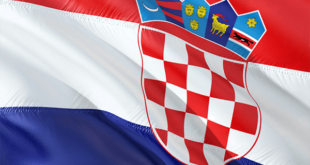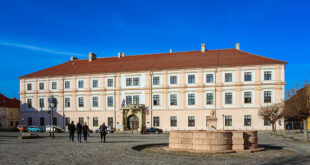When it comes to studying abroad, getting a handle on tuition costs is a step that cannot be overlooked. And Croatia is no exception – despite the lower living and studying costs it offers. In this guide, we will explore the ins and outs of tuition fees in Croatia, highlighting some key aspects that every prospective student should be aware of. We’ll also highlight some of the best scholarships available to international students in Croatia.
Table of Contents
Tuition Fees in Croatia for International Students
Before getting to the heart of the matter, it’s important to mention that since January 2023, Croatia has adopted the Euro as its main currency. Prior to January 2023, it was the Kuna (HKR). And 1 HRK is approximately 0.132719 EUR.
Now, tuition fees at a Croatian university can start as low as 6,000 Kuna (approximately 800 EUR) for undergraduate programs. Depending on the program and the study level, tuition can range up to 75,000 Kuna (approximately 10,000 EUR) per year.
The Structure of Tuition Fees for International Students in Croatia
In Croatian universities, tuition fees vary depending on the language of the program. If you’re studying in Croatian at a public university, there are usually no tuition fees. However, tuition may be charged for programs taught in English.
Private universities are free to set their own fees. Each program may have different annual fees. It’s a good idea to check the specific programs you’re interested in to find out the exact cost.
In summary, higher education in Croatia is relatively inexpensive compared to other European countries. Contact the university directly for exact information on tuition fees, as they may vary depending on the program and duration.
Comparison of tuition fees across different universities and programs
When comparing tuition fees in Croatia, it’s clear that health science programs, such as medicine and dentistry, are the most expensive, ranging from €7,000 to €10,000 per year. These fees apply mainly to English-language programs at public universities.
Meanwhile, undergraduate programs in subjects other than health sciences are more uniform across public and private institutions. Public universities generally offer lower tuition fees, but it is advisable to prioritize quality over cost.
The University of Zagreb, for example, sets a fixed fee of around €3,800 for undergraduate English courses, while private universities charge between €3,700 and €7,000 per year.
Postgraduate programs also vary widely. Master’s degrees at public universities can cost up to €4,000 per year, while private universities charge twice as much. At this level, it’s important to consider specialization and teaching quality.
For example, business master’s programs at public universities such as the University of Rijeka offer merit-based fees, while private institutions charge between €6,000 and €10,000 per year.
Additional study fees and expenses to consider
When considering tuition fees in Croatia, it’s important to factor in additional study fees and expenses. The cost of living in Croatia can range from 400 to 700 EUR per month, depending on your location and type of accommodation.
This budget should cover food, housing, utilities, books, transportation and miscellaneous expenses. However, students may have different expenses based on personal choices and lifestyle.
It’s important to plan for these additional costs in addition to tuition fees to ensure a realistic budget for your studies in Croatia.
We’ll delve more on the subject in our guide on the living cost in Croatia for international students.
Scholarships in Croatia for International Students
To help students financially, Croatia also offers several fully funded scholarships. What’s even better? You don’t have to worry about the IELTS test!
Some institutions may offer partial fee waivers. However, numerous scholarships are available through bilateral agreements and programs such as CEEPUS and Erasmus+.
And these scholarships aren’t just for locals, they’re also open to international students, university teachers and researchers.
Here are some of the best scholarships to check out to fund your studies in Croatia:
Scholarships in Croatia for International Students from Bilateral Cooperations
Bilateral cooperation scholarships in Croatia offer opportunities for international students. These scholarships are based on agreements between countries. Here’s what you need to know about them:
- Number: Each year, a limited number of scholarships are available.
- Application: Interested individuals should apply at the beginning of the calendar year for the following academic year.
- Eligibility: Scholarships are awarded to citizens of specific countries, including Albania, Austria, Belgium (Flanders), Bulgaria, China, France, Germany (Bavaria), Greece, Hungary, India, Israel, Italy, Macedonia, Montenegro, Poland, Portugal, Romania, Slovak Republic, Slovenia, Spain, Turkey, Ukraine, and USA.
- Types of Scholarships: Scholarships cater to various categories, such as semester studies, undergraduate/graduate studies, and research programs.
- Coverage: These scholarships often cover tuition fees in Croatia.
- Research Projects: Bilateral programs also support joint research projects with countries like Albania, Austria, and the USA.
- Fields of Study: Research projects cover various scientific fields, including natural, biomedical, technical, and biotechnical sciences.
For more information on scholarship opportunities, interested students should contact their respective ministries of education. These scholarships offer valuable opportunities for international students to study and conduct research in Croatia.
University Partnership Scholarships in Croatia
Many Croatian universities have agreements with foreign universities. These agreements support different types of cooperation, such as:
- Student and faculty exchange
- Exchange of administrative and professional staff
- Joint organization of courses, conferences, and seminars
- Participation in scientific events
- Joint research projects
- Sharing teaching methods and materials
- Exchange of scientific publications
- Other collaborations
If you want to benefit from these scholarships and study in Croatia without paying tuition fees, you should:
- Check if your university has agreements with Croatian universities.
- Look for announcements from your university about study programs in Croatia.
- Learn about deadlines and requirements from your university.
- Visit the International Cooperation web pages of Croatian universities like the University of Zagreb, Split, Rijeka, Zadar, Osijek, Dubrovnik, and Pula for more information.
Check also our list of the best universities in Croatia for international students.
Erasmus+ Program
The Erasmus+ program in Croatia offers opportunities for students from abroad to study, covering their tuition fees in Croatia. Two types of activities are supported: traineeships and study mobility.
The program also allows for virtual and blended mobility options. To participate, your home institution needs an agreement with a Croatian one. Make sure to contact your Erasmus coordinator for details, including any agreements signed with Croatian institutions.
To join Erasmus+, students must be enrolled in recognized degree programs in eligible countries. For study mobility, students typically need to be in their second year of higher education.
Institutions participating in Erasmus+ must hold an Erasmus Charter for Higher Education, ensuring quality standards. Over 4,700 institutions across 33 countries are part of the program.
In Croatia, activities available under Erasmus+ include:
- Student mobility for studies (3-12 months)
- Student mobility for traineeships (2-12 months)
- Staff mobility for teaching (2 days – 2 months)
- Staff mobility for training (2 days – 2 months)
- Erasmus Mundus Joint Master Degrees
- Erasmus+ Master Degree Loans
CEEPUS Scholarships for International Students from Central Europe
The CEEPUS Scholarship program in Croatia offers great opportunities for students from participating countries, including Albania, Austria, Bosnia and Herzegovina, Poland, and more.
If you’re from one of these countries, you can apply for this scholarship. The main focus of CEEPUS is university networks that run joint programs. Even if your university isn’t in a CEEPUS network, you can still apply as a freemover.
CEEPUS scholarships cover your living expenses, including room and board, and you’ll receive a monthly stipend. Importantly, tuition fees in Croatia are waived for CEEPUS grantees. This means you won’t have to worry about paying for your education while studying in Croatia.
The program aims to promote cooperation and mobility among universities in Central Europe. Whether you’re a student or a teacher, CEEPUS offers opportunities for academic exchange and research collaboration.
If you’re interested, you can find more information and apply through the CEEPUS website before the deadlines:
- June 15 for the winter semester for network mobilities
- October 31 for the summer semester for network mobilities
- November 30 for the summer semester for freemovers
Explore the program’s website for further details, and contact your National CEEPUS office for assistance.
Conclusion
Securing a scholarship to cover tuition fees and living expenses as an international student in Croatia requires strategic planning and effort.
First, it is crucial to perform thorough research to identify any scholarships available to international students. Second, use university, government, and private resources to gather information and opportunities.
Once you have narrowed down your choices, carefully tailor your applications to meet the criteria outlined by each organization. This includes highlighting your academic achievements, extracurricular activities, and relevant work experience.
In addition, demonstrating a passion for studying in Croatia and focusing on long-term goals will also boost your application. Building relationships with professors, mentors, and advisors for letters of recommendation can also help.
Finally, it’s important to apply well in advance of deadlines. This will demonstrate thoroughness and preparedness. The chances of securing funding for study in Croatia are further increased by demonstrating financial need and potential impact.
This post is also available in ar.




 Aljawaz Your guide to study abroad
Aljawaz Your guide to study abroad






